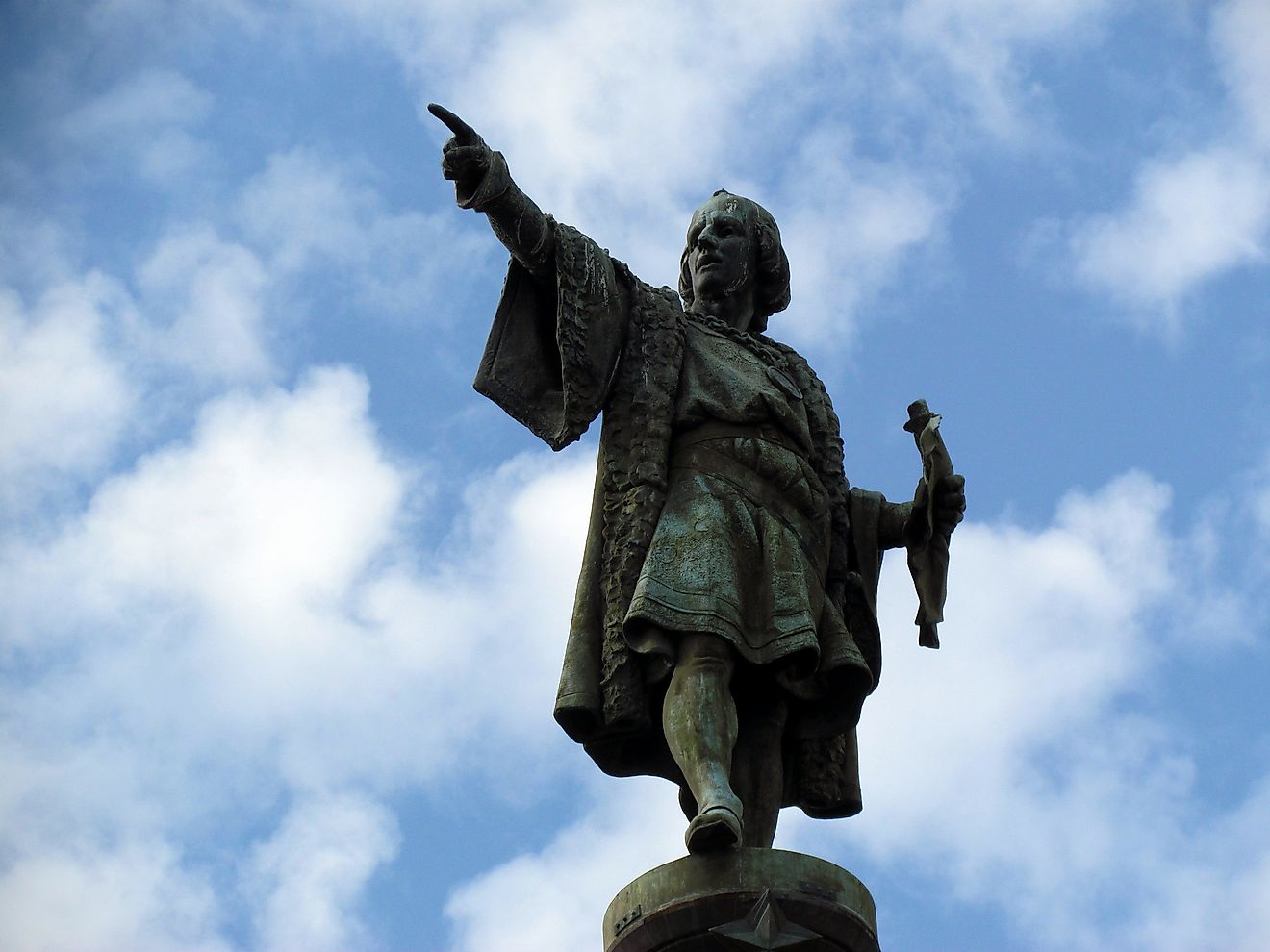Columbian Exchange - The Old World Meets The New World

10. Columbus's Landfall and Contact
Christopher Columbus, Italian navigator, and explorer first made landfall in the New World on October 12, 1492. His original aim was to sail to the West Indies using a new route and instead he found the Americas which he named after Amerigo Vespucci, the Italian cartographer. He landed on an island he named San Salvador for Spain which he soon left to explore more of the New World.
9. Mineral Wealth
The 350 years of Spanish military control of the New World produced so much gold and silver and other precious gems that it made Spain a major European power. Gold was sent back to Spain and used as decorations inside churches and cathedrals. It was also utilized by the Spanish monarchy to pay off their debts and became the standard currency used in buying goods from other nations.
8. Enslavement of Natives
Most of the Americas in the 15th century were exclusively populated by Indian indigenous peoples. When Columbus saw how easily they could be enslaved he wasted no time in the process. He originally started enslaving native peoples in the West Indies. During his years in the New World, Columbus began propagating his policies of forced labor using the indigenous Americans for reaping profit. The natives served as mine laborers and plantation workers under the control of their European masters.
7. Crops and Introduced Wild Plants
Columbus took many crops and wild plants from the New World and brought them to Europe. Some of these are potatoes, tomatoes, and maize. Asia also received new vegetables from the New World such as chili and potatoes. Other produce from Africa and Asia also reached the Americas such as coffee, sugar cane, chocolate, oranges, bananas, paprika, and pineapples. Rubber trees were also introduced to Africa.
6. Livestock and Wild Animals
The Spaniards brought along with them their livestock as well as domesticated pets to the New World. Soon cargo ships were loaded with donkeys, mules, goats, chickens, large dogs, cats, pigs, cattle, horses, bees, and sheep. Some of these animals like the horse altered the history of many native Indian tribes. Conversely, dogs and pigs became pests as they rooted out the small vegetable plots of the American natives. The introduced species also became hazard to the local animal species.
5. Transfer of Religion
The first conversion to Christianity of the Amerindians was under Columbus' direction. The European belief that they were superior to the natives was first and foremost in their minds. Language transfer was closely linked to the Amerindians' acceptance of Christianity. It also helped in closing the gap in trading with the natives. Although at first there was some resistance to Christianity, the natives were won over by the gifts of horse and rifles which helped them in their daily quest for food.
4. Diseases
Malaria was a huge problem bugging Europeans in the Old World for a long time, but after the discovery of quinine from South America, relief was not far away. The Spaniards brought with them diseases such as measles, smallpox, and yellow fever which devastated the native Indian populations of the New World. Incas and other subgroups were badly affected. The estimated death in the New World caused by these foreign diseases accounted for about 80-95% mortality in the Amerindian population. Sexual diseases also became prevalent among the sailors and infected the natives as well.
3. Colonization
Colonization of the New World started in 1492 when Columbus first imposed Christianity and Spanish domination in the Caribbean region. The colonization involved the annexation of several South American countries as Spanish protectorates and colonies under the rule of Spanish governors. The domination was more to the benefit of Spain than the New World. The Spanish rule in the Americas brought justice, freedom, and equality. It also put a stop to the Inca tradition of human sacrifice. As a result of the colonization, 31 new countries were created out of the American continent.
2. Discrimination of Native
The Spaniards always thought of themselves as the master of the Amerindians who were inferiors and could only be saved through acceptance of Christianity. This belief created a rift between the colonists and the natives. At the start, problems would turn into bloodbaths and Indian raids into European settlements. But as Christianity spread, less resistance was met turning most natives into slave labor. A few Spaniards from the ruling class were against the ill-treatment of the natives. The spread of Christianity also vanquished the Inca civilization. Indigenous Indians and Incas were powerless against the modern weaponry of the conquistadors.
1. Historical Significance and Legacy
The Europeans brought to the New World significant changes to the lives of the Amerindians. These changes affected the native population in many negative aspects. The decimation of entire Amerindian populations was not uncommon due to slavery or diseases foreign to them. Misunderstandings and search for gold were settled by the genocide of entire cities. Some Spanish governors were, however, honest in their role as they dispensed justice. The introduction of Christianity and the cultural awareness brought about by the Europeans still is felt today.











